Google Play Books alternatives
Choose from millions of titles on Google Play including new releases, New York Times best sellers, up-and-coming authors, and free books. Easily personalize your reading experience, pick up where you left off on your phone, tablet, or computer, and get reading today The best Google Play Books alternatives are: Kindle, Nook, Kobo, Apple Books
Here are the latest news about Google Play Books:
15.07.23. Google Reading Insights allows to track your kid’s reading habits
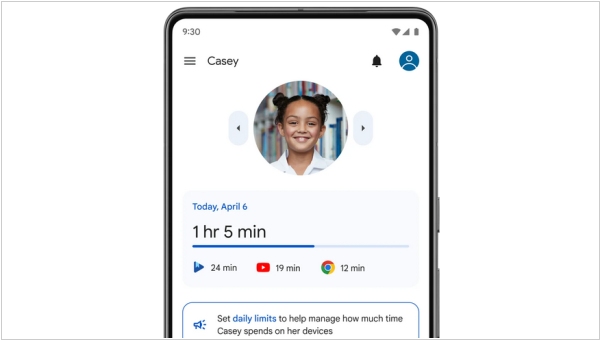
Google has introduced a new feature in Google Play Books called Reading Insights, which serves as a tool for parents to monitor their children's reading activities. This feature, conveniently integrated into the Family Link app along with other parental control tools, enables parents to track their children's book choices and their progress in specific titles. By using Reading Insights, parents can access various information, such as the recent books their children have read, their most frequently read books, their reading frequency, and the extent to which they have progressed in a particular title. This comprehensive overview allows parents to gain a better understanding of their children's reading habits. Furthermore, the Reading Insights feature also supports tracking audiobook titles.
2023. Google Play Books app adds new book management feature
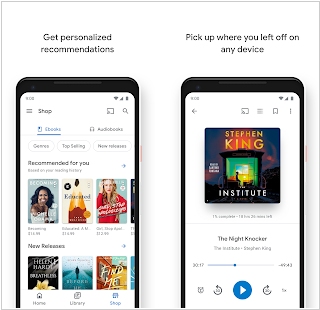
Google Play Books app has recently introduced a significant enhancement to its redesigned library management system, with the aim of making the organization of your book collection simpler. One notable improvement is the ability to handle multiple books at the same time, allowing users to easily select and manage numerous titles together. Now, actions like adding books to shelves, marking them as finished, or removing downloaded copies from devices can be done in bulk. To aid in efficient book discovery, Google has implemented various filtering options. Users can now filter books by genre, author, reading age (particularly beneficial for children's books), and family library status. These filters make it effortless to quickly identify specific books based on personal preferences.
2023. Google Play Books now offering new Reading Practice tool for kids
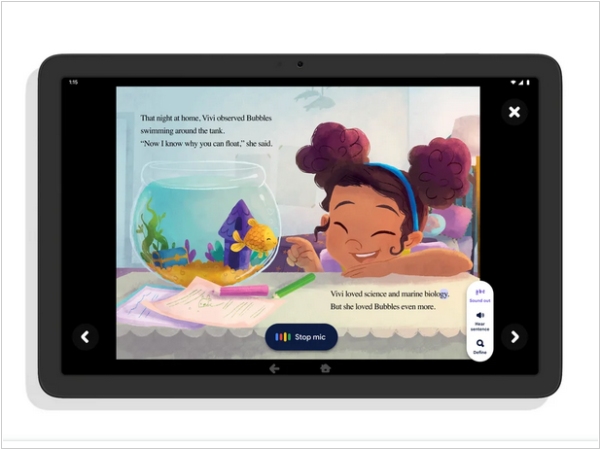
Google Play Books is introducing a new feature called Reading Practice in the United States, which aims to assist young readers in improving their comprehension skills using children's e-books. This feature will be accessible through the Google Play Books Android app and Google Kids Space. With Reading Practice, children will be able to enhance their vocabulary by tapping on words to hear their pronunciation and child-friendly definition. For early readers, a text tracker will highlight the words as they read aloud, allowing them to practice any missed or mispronounced words at the end of each page. The majority of books on Google Play Books will include Reading Practice, ensuring easy access to this valuable tool. Google Play is committed to creating family-oriented products and services that support children in learning and exploring technology safely. The goal is to provide parents with the necessary tools and flexibility to encourage reading in their children while fostering healthy and positive digital habits.
2022. Google Play Books adds a Wish List
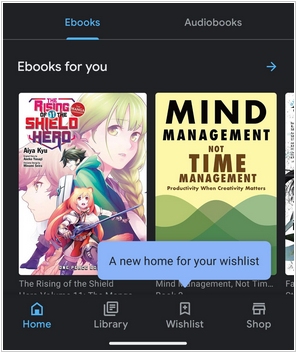
Google Play Books is rolling out an update for its Android app, introducing a convenient wish list feature accessible through the main navigation bar at the bottom of the screen, alongside the Home, Library, and Shop buttons. This dedicated wish list option is designed specifically for Play Books, allowing users to add desired titles for future purchase, which can be viewed at any time. Clicking on a title in the wish list will redirect users to the respective Google Play Books entry, enabling them to download a sample or make a purchase. The Play Books app has been a popular choice among users for both buying and reading books, as it offers a seamless in-app purchase experience. However, in recent months, the company has revised its billing policy, imposing a 30% charge on developers for each in-app transaction. As a result, this change has compelled Audible, Amazon Kindle, and Barnes & Noble to remove the ability to purchase content, transforming their apps into consumption-only platforms.
2021. Google Play Books now has new tools to make reading easier for kids
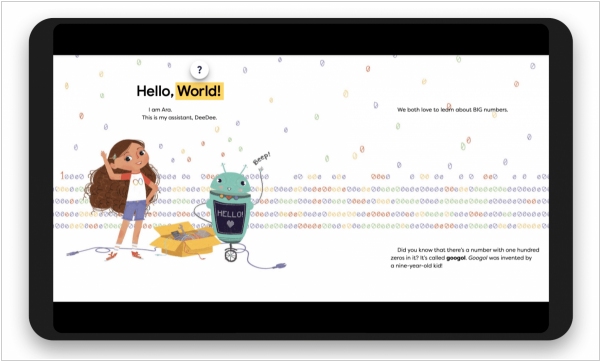
Google Play Books has introduced a set of new tools designed to simplify the reading experience for children. With the Read & Listen feature, books can be read aloud to kids, allowing for both manual page-turning or automatic progression. The Tap to Read feature enables word pronunciation by simply tapping on any selected word, providing a description and often an accompanying illustration to enhance understanding. Additionally, a Kid-Friendly Dictionary is available to offer simplified explanations of word meanings, further supporting the learning process and ensuring a comprehensive understanding for young readers.
2021. Google Play Books will help kids to learn to read
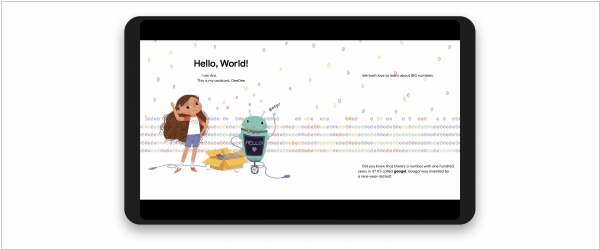
To facilitate the learning process for young children, Google Play Books has introduced several new features. Firstly, it allows children to listen to books being read aloud, enhancing their auditory learning experience. Moreover, kids can now tap on individual words within the books to hear them spoken out loud, aiding in vocabulary development. Additionally, Google Play Books offers access to thousands of kid-friendly definitions, with many definitions accompanied by illustrations to enhance comprehension and foster learning. Google states that most of their children's books are equipped with these new reading tools. Parents can also download a free sample of any children's book to confirm if the reading tools are enabled for that particular title before making a purchase.
2019. Google Play allows to rent ebooks
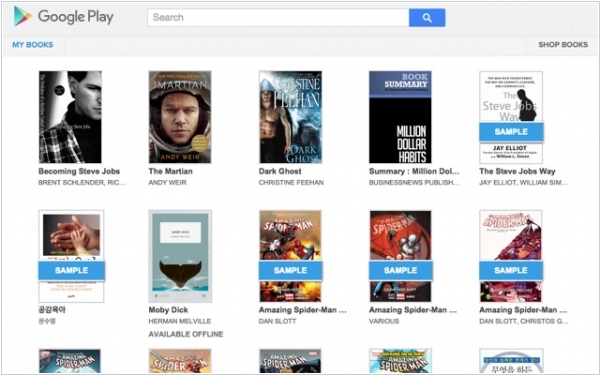
Google Play has recently introduced a new ebook rental system. This system quietly launched last week, offering approximately 200 titles from Open Road Media. The rental prices range from $1 to $2, and the rental period lasts for 3 days, providing ample time to avidly devour most of the available romance, thriller, and science-fiction novels. However, it's important to note that the Google Play rental system is currently limited to customers in the United States. It remains uncertain whether this system is being tested to assess consumer feedback or if it signifies a broader effort to enter the rental market in collaboration with other publishers.
2019. Google Play Books adds custom shelves, shelf icons
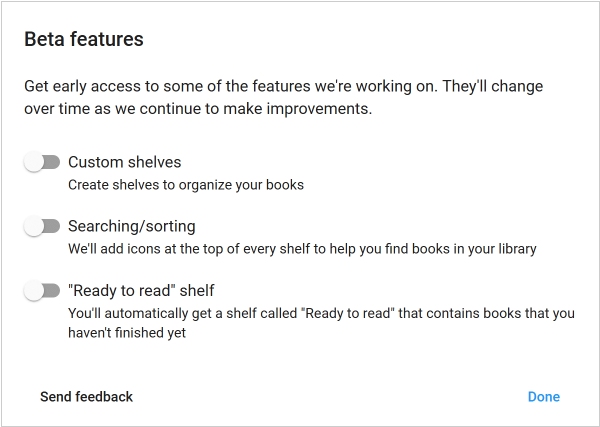
Google Play Books has introduced Beta Features, granting users early access to experimental functionalities. The initial set of features includes customized bookshelves, enabling users to organize their books in any way they prefer. The availability of searching and sorting options allows for quick retrieval of specific books or sorting the library based on different criteria. Additionally, the Ready to Read feature presents a new shelf displaying books that users haven't finished, facilitating easy resumption from where they left off. Initially, these beta features are accessible through the desktop browser and will subsequently extend to Android and iOS platforms.
2019. Google Play Books gets redesign on Android
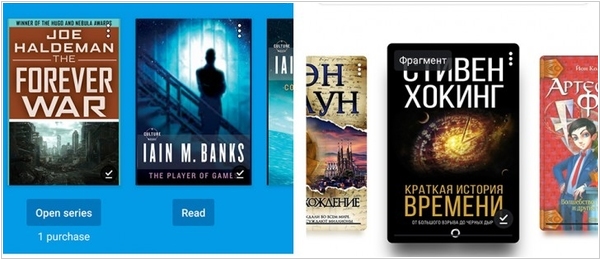
Play Books has received an update from Google, featuring a new material design that enhances its visual appeal and promotes a more streamlined and minimalist look. The focus of the redesign is primarily on aesthetics, with hollow iconography, predominantly white backgrounds, and the implementation of Google/Product Sans fonts. Both the carousel on the home screen and the bookstore have been made smaller and more compact, aligning with this new design. While the reading experience within the app has undergone minimal changes, some users may find the slight adjustments less favorable for accessibility. Certain text elements have reduced in size, and interactive components are also smaller. However, as an ebook reader, users have the option to customize the font sizes according to their preferences.
2018. Google Audiobooks gets Trim Silences feature
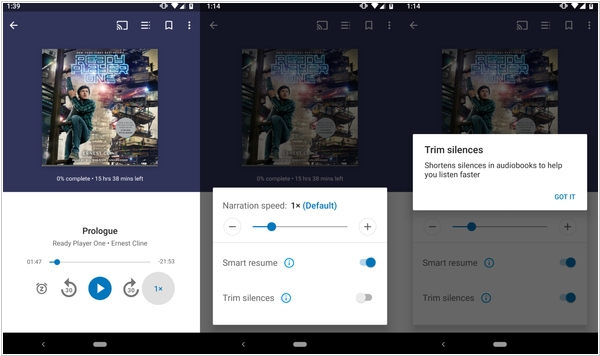
Google Play Books has recently introduced a new feature known as Trim Silences, available exclusively for listening to audiobooks purchased from Google. This functionality automatically shortens extended pauses between words or sentences. While professional audiobooks typically have these pauses removed by default, Trim Silences proves particularly valuable for certain small presses and independent authors who may have unintentional longer pauses.
2018. Android e-Readers can no longer access Google Play
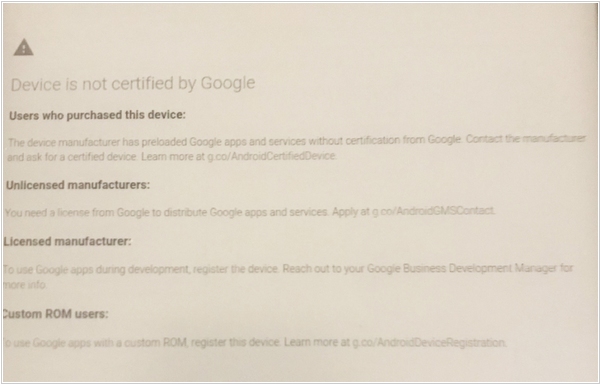
Google has implemented a new security policy that is causing difficulties for users trying to access the Google Play Store on their Android e-readers. Many popular brands in Asia and Europe lack an official license for Google Play and instead rely on loading the framework and app store independently. However, this approach is no longer sufficient due to the updated policy. Existing e-reader users who have already linked their Google accounts before March 16th, 2018, should not encounter any issues. On the other hand, individuals who have recently purchased a new Android e-reader or have restored their existing one to factory settings will no longer be able to access the Play Store.
2018. Google Play audiobooks get Smart Resume and bookmarks
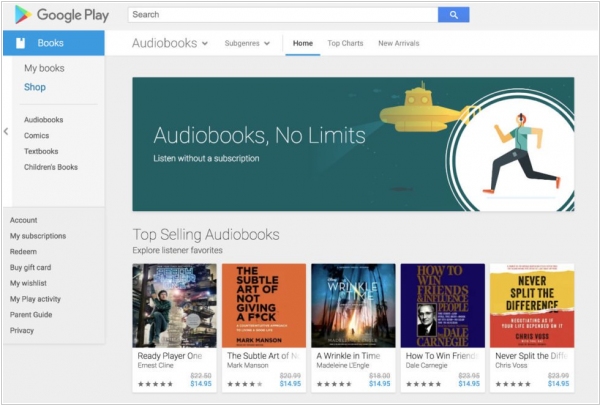
Google Play Audiobooks has received a significant update, introducing several much-needed features to enhance the service since its initial launch earlier this year. One notable addition is the Smart Resume feature, which addresses interruptions during audiobook playback. Instead of resuming in the middle of a sentence or word, Smart Resume intelligently rewinds to the beginning of the interrupted word or sentence, ensuring a seamless listening experience. Furthermore, this update introduces the ability to set bookmarks, allowing users to easily revisit their favorite parts of a book, as well as the option to adjust the audio speed, enabling users to savor their preferred passages at their desired pace, even in a literary masterpiece like Ulysses. If you are an avid user of Google Assistant's Routines feature, you'll be delighted to know that you can now choose to continue your audiobooks when you wake up or commence your daily commute.
2018. Google brings audiobooks to its Play store
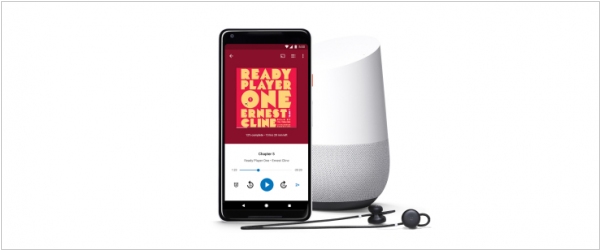
Google Play store now includes audiobooks in its offerings. This new feature for audiobooks is being launched in 45 countries and is available in nine languages. Similar to other platforms, you can listen to a preview of the audiobook directly on the Play Store. Moreover, audiobooks are automatically added to your family library, enabling easy sharing of your copy of "The Subtle Art of Not Giving a F*ck" with everyone in your household. One particularly handy feature is the integration with Google Assistant on both your phone and Google Home. With this integration, you can simply ask the assistant to read your book, and it will comply. You can also ask basic questions about the book, such as the author's identity. Google's pricing appears to be competitive when compared to similar offerings from Amazon.
2017. Google Play Books improves reading experience
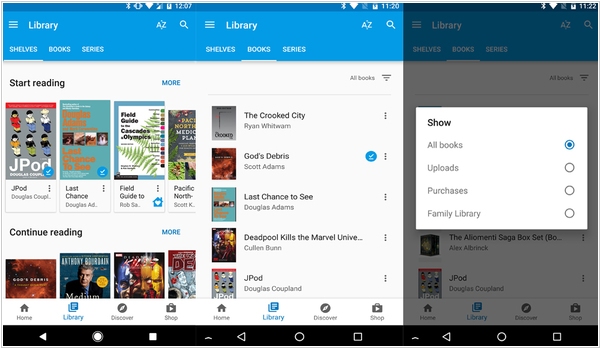
The Google Play Books app for Android has recently undergone a significant revision, resulting in a simplified and enhanced reading experience. Notably, the Library page has undergone notable changes, with four out of the original five tabs being removed. The revised version now features two primary tabs: Shelves and Books. The new Shelves system showcases vibrant and visually appealing cover art, highlighting books that have yet to be started. Below that, you'll find books that are currently being read, followed by a row dedicated to finished books. All the functionalities previously provided by the removed tabs can now be accessed within the Books tab. This tab offers a comprehensive list of all your books, and you can utilize the filter button located at the top right corner of the page to refine the list according to your uploads, purchases, or books in the family library.
2016. Google Play now allows to gift e-books
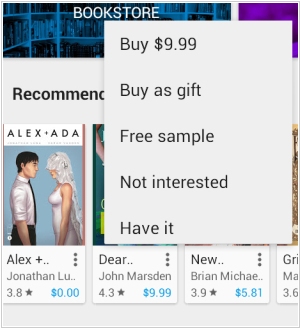
The Android app for Google Play Books has recently received a minor update, enabling users to send e-books as gifts. To do so, you can effortlessly proceed by selecting one of the books displayed on your homepage or within the Play Books Store, and then clicking on the three dots. From there, you will find an option to gift the e-book to someone who already has an account. Once sent, the recipient will receive an instant notification informing them of the gifted e-book, along with detailed instructions on how to access and read it within the app.
2015. Google Play Books makes it easier to read at night
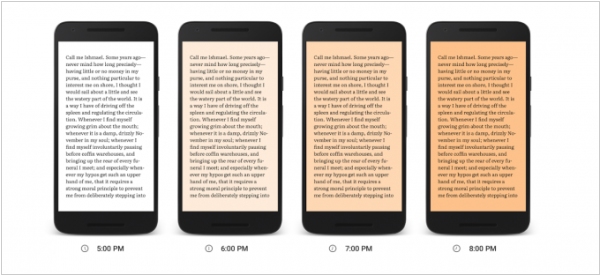
For avid nighttime readers using their mobile devices, the struggle to relax while being bombarded by the bright screen is all too familiar. Unlike physical books, which can be accompanied by a soft room light for a soothing experience, Google Play Books aims to replicate that gentler ambiance through a feature called "Night Light." As the evening progresses, Night Light gradually reduces the blue light emitted by your screen, replacing it with a warm, amber light to enhance the comfort of flipping through digital pages. This feature automatically adjusts to the natural sunlight available based on the time of day, providing the optimal temperature and brightness for a more pleasant reading experience. The color adaptation not only makes reading in low-light conditions easier on the eyes but also greatly enhances the overall enjoyment of nighttime reading.
2015. Google improved Comic Book reading in Play Books for Android
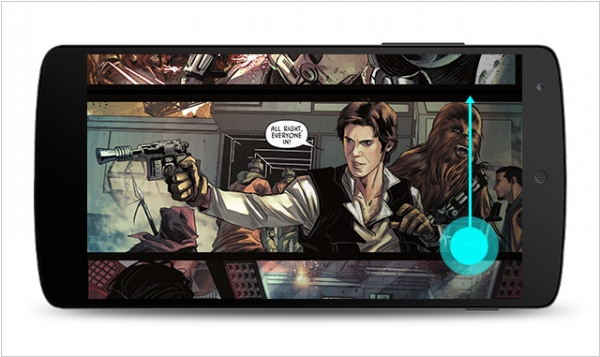
Google has introduced an upgraded version of its Google Play Books app for Android, aiming to enhance the comic reading experience on smartphones and tablets. Traditionally, reading comics or graphic novels on small screens has presented challenges. However, with the new reading experience on Android (with iOS support arriving soon), users can now enjoy an improved landscape mode. In this mode, a simple vertical swipe allows for seamless scrolling through the story, providing a more convenient and immersive reading experience. Additionally, Google has implemented personalized comic recommendations to help users discover similar series, along with curated series pages within the Play Store specifically for comics, making it easier to explore and find new titles of interest.
2014. Google Play Books’ new reading mode lets you browse huge ebooks faster

Google has recently rolled out an update to its eReader application, Google Play Books, with a primary focus on enhancing the reading experience. The latest update introduces a feature called Skim mode, which allows users to seamlessly zoom between pages in a continuous flow, eliminating the need to flip through pages individually. Additionally, the Quick Bookmarks feature enables users to set multiple saved points within a book and easily navigate back and forth between them. This feature proves particularly useful when referencing specific information located far from your current reading position, such as a reference table that may be 200 pages away. Another noteworthy enhancement is the ability to access all notes and highlights on a single page, providing a convenient way to review and revisit relevant passages. These improvements have significant study benefits, facilitating a more efficient and organized reading experience.
2013. Google Play to sell and rent digital textbooks
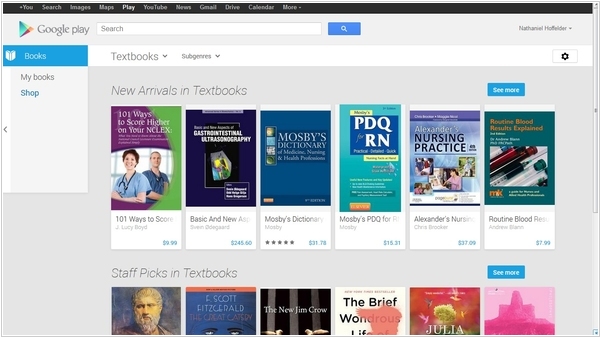
In August, Google will introduce the option to purchase and rent digital textbooks through the Google Play Books store. Google has collaborated with the five largest textbook publishers to provide students with the opportunity to buy digital textbooks or rent them for a duration of up to six months. According to Google, these textbooks will be priced at "up to 80 percent" lower than the print list prices, which aligns with Amazon's claim for Kindle textbook rentals. While Google already offers a few digital textbooks on the Play store, these are not from major publishers and are not available for rental. By entering the textbook market, Google aims to compete with established players such as Amazon, Barnes & Noble, and Apple, who have already ventured into the digital textbook space.
2013. Google Play Books is Now Available in 9 More Countries in Europe
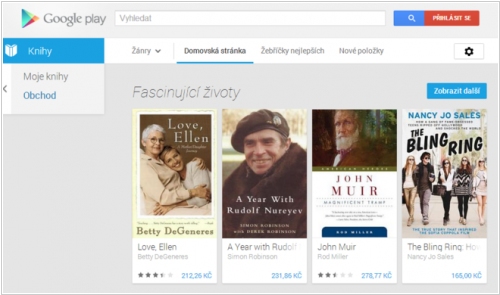
The ebook store that ranks as the world's second slowest in terms of expansion is Google Play Books. However, it has recently achieved notable progress by launching new local ebookstores in nine additional countries. These countries include the Czech Republic, Denmark, Finland, Greece, Hungary, Netherlands, Poland, Romania, and Sweden. In late June, Google Play Books also expanded its reach to Portugal, Austria, Ireland, and Belgium. Currently, Google's ebook store operates in a total of 26 countries, spanning from the United States to Russia and Australia. The store predominantly offers Epub format ebooks and actively supports Epub3 while discouraging other ebook formats.
2013. Google Play Books now allows users to upload own ebooks
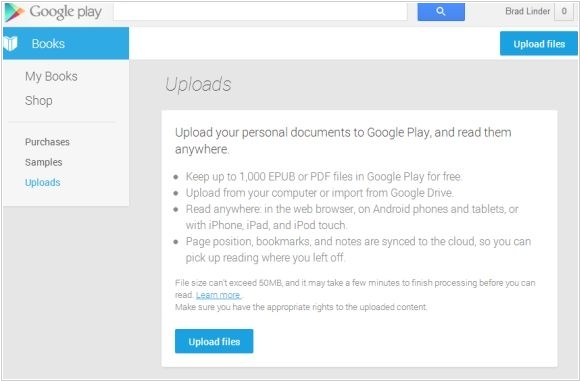
In a recent update to its Android and iOS apps, Google Play Books now offers the ability for users to upload a maximum of 1,000 PDF and EPUB files to their Google Play accounts. These files can be easily uploaded from users' computers or imported from Google Drive, provided they are under 50MB in size. Once uploaded to the library, the files can be accessed on the web as well as on Android and iOS phones and tablets, as announced by the internet giant on Wednesday. Importantly, the synchronization of page positions, bookmarks, and notes across multiple devices enables users to seamlessly continue reading from where they left off when switching between devices. This feature provides Google with a competitive advantage over Apple iBooks, as the latter currently does not support user-uploaded content.
2013. Barnes & Noble integrates Google Play into Nook tablets
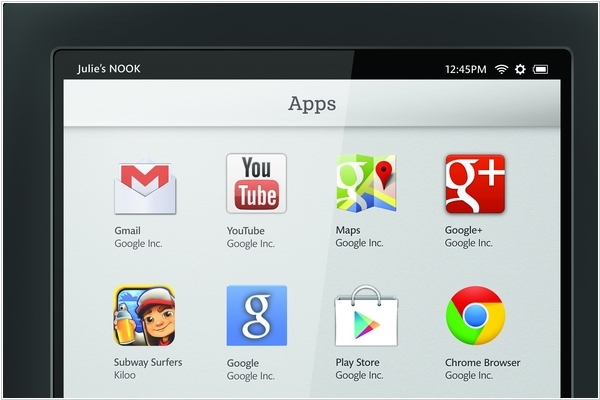
Barnes & Noble has made an unexpected decision to incorporate the Google Play marketplace, along with various Google services such as Google+, Gmail, YouTube, and Maps, into its Nook HD and HD+ tablets. Although Nook tablets are already based on the Android platform, this move may appear peculiar given the company's strategic partnership with Microsoft. However, according to Jim Hilt, Barnes & Noble's VP of ebooks, the intention is to offer Nook tablet users a more extensive media ecosystem, and the company remains unconcerned about competition from Google Books. Hilt expressed confidence in the Nook shopping experience, believing that users will ultimately choose it when utilizing Nook devices.
2012. Google Play Books app adds the power of Internet to reading
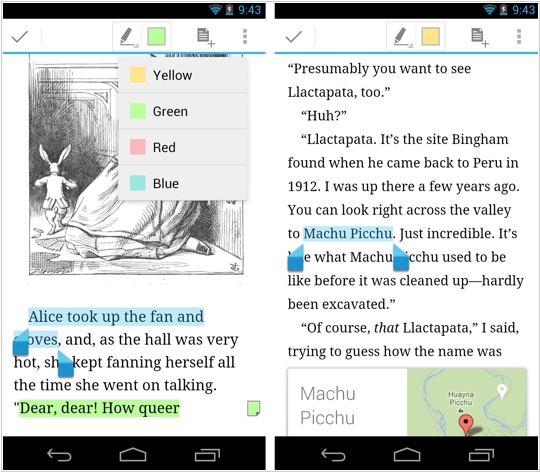
Today, Google has released an update for the Android app Google Play Books, which enables users to purchase and read ebooks directly on their smartphones. This latest update introduces enhanced features that enrich the reading experience by leveraging the capabilities of the internet. One notable addition is the ability to select a word and instantly access its translation into various languages or refer to its definition from available dictionaries. Additionally, if the selected word pertains to a geographic location, users can view its corresponding location on the integrated Google Maps card. Furthermore, users now have the option to highlight words and phrases and create side-notes for further reference. These annotations and notes seamlessly synchronize across multiple devices, including phones, tablets, and the web, thanks to Google Play Books' cloud-based content storage.
2011. iriver Story HD - the first e-reader that allows to read Google eBooks
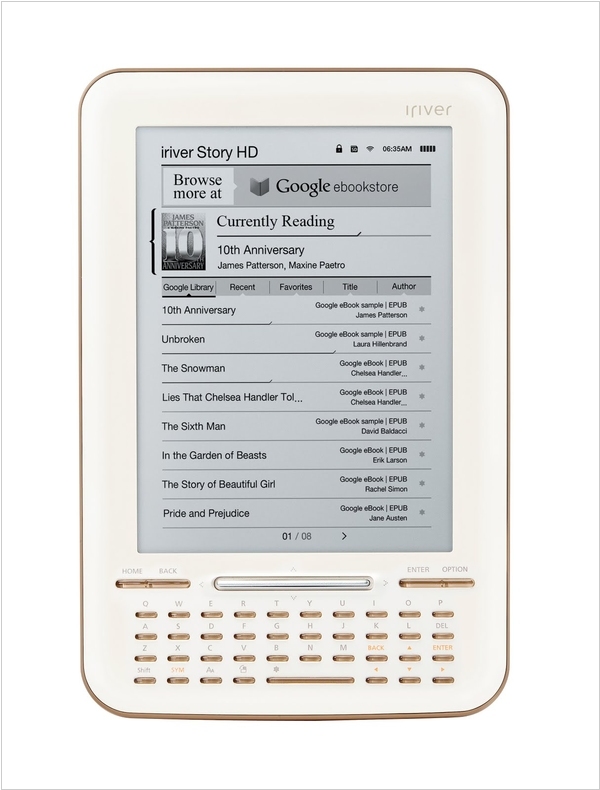
Although Google does not manufacture its own dedicated e-reading device for Google eBooks, there is now at least one third-party e-reader available that enables users to read Google eBooks: the iriver Story HD. This device has been specifically optimized for seamless compatibility with Google eBooks through a collaborative effort between the two companies. With the Story HD, users can effortlessly browse, purchase, and read Google eBooks directly on their e-reader using Wi-Fi connectivity, eliminating the need for manual downloading and transferring from a computer using a cable. Priced at $139.99, the slim and lightweight iriver Story HD features a high-resolution E-Ink screen and a QWERTY keyboard for easy searching. It provides over-the-air access to a vast selection of hundreds of thousands of Google eBooks available for purchase, along with an extensive library of over 3 million free titles.
15.07.23. Google Reading Insights allows to track your kid’s reading habits

Google has introduced a new feature in Google Play Books called Reading Insights, which serves as a tool for parents to monitor their children's reading activities. This feature, conveniently integrated into the Family Link app along with other parental control tools, enables parents to track their children's book choices and their progress in specific titles. By using Reading Insights, parents can access various information, such as the recent books their children have read, their most frequently read books, their reading frequency, and the extent to which they have progressed in a particular title. This comprehensive overview allows parents to gain a better understanding of their children's reading habits. Furthermore, the Reading Insights feature also supports tracking audiobook titles.
2023. Google Play Books app adds new book management feature

Google Play Books app has recently introduced a significant enhancement to its redesigned library management system, with the aim of making the organization of your book collection simpler. One notable improvement is the ability to handle multiple books at the same time, allowing users to easily select and manage numerous titles together. Now, actions like adding books to shelves, marking them as finished, or removing downloaded copies from devices can be done in bulk. To aid in efficient book discovery, Google has implemented various filtering options. Users can now filter books by genre, author, reading age (particularly beneficial for children's books), and family library status. These filters make it effortless to quickly identify specific books based on personal preferences.
2023. Google Play Books now offering new Reading Practice tool for kids

Google Play Books is introducing a new feature called Reading Practice in the United States, which aims to assist young readers in improving their comprehension skills using children's e-books. This feature will be accessible through the Google Play Books Android app and Google Kids Space. With Reading Practice, children will be able to enhance their vocabulary by tapping on words to hear their pronunciation and child-friendly definition. For early readers, a text tracker will highlight the words as they read aloud, allowing them to practice any missed or mispronounced words at the end of each page. The majority of books on Google Play Books will include Reading Practice, ensuring easy access to this valuable tool. Google Play is committed to creating family-oriented products and services that support children in learning and exploring technology safely. The goal is to provide parents with the necessary tools and flexibility to encourage reading in their children while fostering healthy and positive digital habits.
2022. Google Play Books adds a Wish List

Google Play Books is rolling out an update for its Android app, introducing a convenient wish list feature accessible through the main navigation bar at the bottom of the screen, alongside the Home, Library, and Shop buttons. This dedicated wish list option is designed specifically for Play Books, allowing users to add desired titles for future purchase, which can be viewed at any time. Clicking on a title in the wish list will redirect users to the respective Google Play Books entry, enabling them to download a sample or make a purchase. The Play Books app has been a popular choice among users for both buying and reading books, as it offers a seamless in-app purchase experience. However, in recent months, the company has revised its billing policy, imposing a 30% charge on developers for each in-app transaction. As a result, this change has compelled Audible, Amazon Kindle, and Barnes & Noble to remove the ability to purchase content, transforming their apps into consumption-only platforms.
2021. Google Play Books now has new tools to make reading easier for kids

Google Play Books has introduced a set of new tools designed to simplify the reading experience for children. With the Read & Listen feature, books can be read aloud to kids, allowing for both manual page-turning or automatic progression. The Tap to Read feature enables word pronunciation by simply tapping on any selected word, providing a description and often an accompanying illustration to enhance understanding. Additionally, a Kid-Friendly Dictionary is available to offer simplified explanations of word meanings, further supporting the learning process and ensuring a comprehensive understanding for young readers.
2021. Google Play Books will help kids to learn to read

To facilitate the learning process for young children, Google Play Books has introduced several new features. Firstly, it allows children to listen to books being read aloud, enhancing their auditory learning experience. Moreover, kids can now tap on individual words within the books to hear them spoken out loud, aiding in vocabulary development. Additionally, Google Play Books offers access to thousands of kid-friendly definitions, with many definitions accompanied by illustrations to enhance comprehension and foster learning. Google states that most of their children's books are equipped with these new reading tools. Parents can also download a free sample of any children's book to confirm if the reading tools are enabled for that particular title before making a purchase.
2019. Google Play allows to rent ebooks

Google Play has recently introduced a new ebook rental system. This system quietly launched last week, offering approximately 200 titles from Open Road Media. The rental prices range from $1 to $2, and the rental period lasts for 3 days, providing ample time to avidly devour most of the available romance, thriller, and science-fiction novels. However, it's important to note that the Google Play rental system is currently limited to customers in the United States. It remains uncertain whether this system is being tested to assess consumer feedback or if it signifies a broader effort to enter the rental market in collaboration with other publishers.
2019. Google Play Books adds custom shelves, shelf icons

Google Play Books has introduced Beta Features, granting users early access to experimental functionalities. The initial set of features includes customized bookshelves, enabling users to organize their books in any way they prefer. The availability of searching and sorting options allows for quick retrieval of specific books or sorting the library based on different criteria. Additionally, the Ready to Read feature presents a new shelf displaying books that users haven't finished, facilitating easy resumption from where they left off. Initially, these beta features are accessible through the desktop browser and will subsequently extend to Android and iOS platforms.
2019. Google Play Books gets redesign on Android

Play Books has received an update from Google, featuring a new material design that enhances its visual appeal and promotes a more streamlined and minimalist look. The focus of the redesign is primarily on aesthetics, with hollow iconography, predominantly white backgrounds, and the implementation of Google/Product Sans fonts. Both the carousel on the home screen and the bookstore have been made smaller and more compact, aligning with this new design. While the reading experience within the app has undergone minimal changes, some users may find the slight adjustments less favorable for accessibility. Certain text elements have reduced in size, and interactive components are also smaller. However, as an ebook reader, users have the option to customize the font sizes according to their preferences.
2018. Google Audiobooks gets Trim Silences feature

Google Play Books has recently introduced a new feature known as Trim Silences, available exclusively for listening to audiobooks purchased from Google. This functionality automatically shortens extended pauses between words or sentences. While professional audiobooks typically have these pauses removed by default, Trim Silences proves particularly valuable for certain small presses and independent authors who may have unintentional longer pauses.
2018. Android e-Readers can no longer access Google Play

Google has implemented a new security policy that is causing difficulties for users trying to access the Google Play Store on their Android e-readers. Many popular brands in Asia and Europe lack an official license for Google Play and instead rely on loading the framework and app store independently. However, this approach is no longer sufficient due to the updated policy. Existing e-reader users who have already linked their Google accounts before March 16th, 2018, should not encounter any issues. On the other hand, individuals who have recently purchased a new Android e-reader or have restored their existing one to factory settings will no longer be able to access the Play Store.
2018. Google Play audiobooks get Smart Resume and bookmarks

Google Play Audiobooks has received a significant update, introducing several much-needed features to enhance the service since its initial launch earlier this year. One notable addition is the Smart Resume feature, which addresses interruptions during audiobook playback. Instead of resuming in the middle of a sentence or word, Smart Resume intelligently rewinds to the beginning of the interrupted word or sentence, ensuring a seamless listening experience. Furthermore, this update introduces the ability to set bookmarks, allowing users to easily revisit their favorite parts of a book, as well as the option to adjust the audio speed, enabling users to savor their preferred passages at their desired pace, even in a literary masterpiece like Ulysses. If you are an avid user of Google Assistant's Routines feature, you'll be delighted to know that you can now choose to continue your audiobooks when you wake up or commence your daily commute.
2018. Google brings audiobooks to its Play store

Google Play store now includes audiobooks in its offerings. This new feature for audiobooks is being launched in 45 countries and is available in nine languages. Similar to other platforms, you can listen to a preview of the audiobook directly on the Play Store. Moreover, audiobooks are automatically added to your family library, enabling easy sharing of your copy of "The Subtle Art of Not Giving a F*ck" with everyone in your household. One particularly handy feature is the integration with Google Assistant on both your phone and Google Home. With this integration, you can simply ask the assistant to read your book, and it will comply. You can also ask basic questions about the book, such as the author's identity. Google's pricing appears to be competitive when compared to similar offerings from Amazon.
2017. Google Play Books improves reading experience

The Google Play Books app for Android has recently undergone a significant revision, resulting in a simplified and enhanced reading experience. Notably, the Library page has undergone notable changes, with four out of the original five tabs being removed. The revised version now features two primary tabs: Shelves and Books. The new Shelves system showcases vibrant and visually appealing cover art, highlighting books that have yet to be started. Below that, you'll find books that are currently being read, followed by a row dedicated to finished books. All the functionalities previously provided by the removed tabs can now be accessed within the Books tab. This tab offers a comprehensive list of all your books, and you can utilize the filter button located at the top right corner of the page to refine the list according to your uploads, purchases, or books in the family library.
2016. Google Play now allows to gift e-books

The Android app for Google Play Books has recently received a minor update, enabling users to send e-books as gifts. To do so, you can effortlessly proceed by selecting one of the books displayed on your homepage or within the Play Books Store, and then clicking on the three dots. From there, you will find an option to gift the e-book to someone who already has an account. Once sent, the recipient will receive an instant notification informing them of the gifted e-book, along with detailed instructions on how to access and read it within the app.
2015. Google Play Books makes it easier to read at night

For avid nighttime readers using their mobile devices, the struggle to relax while being bombarded by the bright screen is all too familiar. Unlike physical books, which can be accompanied by a soft room light for a soothing experience, Google Play Books aims to replicate that gentler ambiance through a feature called "Night Light." As the evening progresses, Night Light gradually reduces the blue light emitted by your screen, replacing it with a warm, amber light to enhance the comfort of flipping through digital pages. This feature automatically adjusts to the natural sunlight available based on the time of day, providing the optimal temperature and brightness for a more pleasant reading experience. The color adaptation not only makes reading in low-light conditions easier on the eyes but also greatly enhances the overall enjoyment of nighttime reading.
2015. Google improved Comic Book reading in Play Books for Android

Google has introduced an upgraded version of its Google Play Books app for Android, aiming to enhance the comic reading experience on smartphones and tablets. Traditionally, reading comics or graphic novels on small screens has presented challenges. However, with the new reading experience on Android (with iOS support arriving soon), users can now enjoy an improved landscape mode. In this mode, a simple vertical swipe allows for seamless scrolling through the story, providing a more convenient and immersive reading experience. Additionally, Google has implemented personalized comic recommendations to help users discover similar series, along with curated series pages within the Play Store specifically for comics, making it easier to explore and find new titles of interest.
2014. Google Play Books’ new reading mode lets you browse huge ebooks faster

Google has recently rolled out an update to its eReader application, Google Play Books, with a primary focus on enhancing the reading experience. The latest update introduces a feature called Skim mode, which allows users to seamlessly zoom between pages in a continuous flow, eliminating the need to flip through pages individually. Additionally, the Quick Bookmarks feature enables users to set multiple saved points within a book and easily navigate back and forth between them. This feature proves particularly useful when referencing specific information located far from your current reading position, such as a reference table that may be 200 pages away. Another noteworthy enhancement is the ability to access all notes and highlights on a single page, providing a convenient way to review and revisit relevant passages. These improvements have significant study benefits, facilitating a more efficient and organized reading experience.
2013. Google Play to sell and rent digital textbooks

In August, Google will introduce the option to purchase and rent digital textbooks through the Google Play Books store. Google has collaborated with the five largest textbook publishers to provide students with the opportunity to buy digital textbooks or rent them for a duration of up to six months. According to Google, these textbooks will be priced at "up to 80 percent" lower than the print list prices, which aligns with Amazon's claim for Kindle textbook rentals. While Google already offers a few digital textbooks on the Play store, these are not from major publishers and are not available for rental. By entering the textbook market, Google aims to compete with established players such as Amazon, Barnes & Noble, and Apple, who have already ventured into the digital textbook space.
2013. Google Play Books is Now Available in 9 More Countries in Europe

The ebook store that ranks as the world's second slowest in terms of expansion is Google Play Books. However, it has recently achieved notable progress by launching new local ebookstores in nine additional countries. These countries include the Czech Republic, Denmark, Finland, Greece, Hungary, Netherlands, Poland, Romania, and Sweden. In late June, Google Play Books also expanded its reach to Portugal, Austria, Ireland, and Belgium. Currently, Google's ebook store operates in a total of 26 countries, spanning from the United States to Russia and Australia. The store predominantly offers Epub format ebooks and actively supports Epub3 while discouraging other ebook formats.
2013. Google Play Books now allows users to upload own ebooks

In a recent update to its Android and iOS apps, Google Play Books now offers the ability for users to upload a maximum of 1,000 PDF and EPUB files to their Google Play accounts. These files can be easily uploaded from users' computers or imported from Google Drive, provided they are under 50MB in size. Once uploaded to the library, the files can be accessed on the web as well as on Android and iOS phones and tablets, as announced by the internet giant on Wednesday. Importantly, the synchronization of page positions, bookmarks, and notes across multiple devices enables users to seamlessly continue reading from where they left off when switching between devices. This feature provides Google with a competitive advantage over Apple iBooks, as the latter currently does not support user-uploaded content.
2013. Barnes & Noble integrates Google Play into Nook tablets

Barnes & Noble has made an unexpected decision to incorporate the Google Play marketplace, along with various Google services such as Google+, Gmail, YouTube, and Maps, into its Nook HD and HD+ tablets. Although Nook tablets are already based on the Android platform, this move may appear peculiar given the company's strategic partnership with Microsoft. However, according to Jim Hilt, Barnes & Noble's VP of ebooks, the intention is to offer Nook tablet users a more extensive media ecosystem, and the company remains unconcerned about competition from Google Books. Hilt expressed confidence in the Nook shopping experience, believing that users will ultimately choose it when utilizing Nook devices.
2012. Google Play Books app adds the power of Internet to reading

Today, Google has released an update for the Android app Google Play Books, which enables users to purchase and read ebooks directly on their smartphones. This latest update introduces enhanced features that enrich the reading experience by leveraging the capabilities of the internet. One notable addition is the ability to select a word and instantly access its translation into various languages or refer to its definition from available dictionaries. Additionally, if the selected word pertains to a geographic location, users can view its corresponding location on the integrated Google Maps card. Furthermore, users now have the option to highlight words and phrases and create side-notes for further reference. These annotations and notes seamlessly synchronize across multiple devices, including phones, tablets, and the web, thanks to Google Play Books' cloud-based content storage.
2011. iriver Story HD - the first e-reader that allows to read Google eBooks

Although Google does not manufacture its own dedicated e-reading device for Google eBooks, there is now at least one third-party e-reader available that enables users to read Google eBooks: the iriver Story HD. This device has been specifically optimized for seamless compatibility with Google eBooks through a collaborative effort between the two companies. With the Story HD, users can effortlessly browse, purchase, and read Google eBooks directly on their e-reader using Wi-Fi connectivity, eliminating the need for manual downloading and transferring from a computer using a cable. Priced at $139.99, the slim and lightweight iriver Story HD features a high-resolution E-Ink screen and a QWERTY keyboard for easy searching. It provides over-the-air access to a vast selection of hundreds of thousands of Google eBooks available for purchase, along with an extensive library of over 3 million free titles.

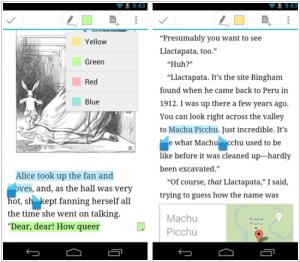
Missing one star because
1) I would really like to see annotation capabilities for scanned pages.
2) Takes a very long time when you click on a hyperlink to go to that hyperlink and back to the text
3) needs an in-app way to dim the light